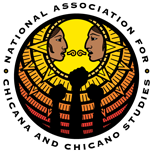|
NACCS for Brginners |
NACCS for Beginners is a workshop that is given during the conference to introduce NACCS and its structure to new conference participantes and members. Here are two documents, one that shows the history and development of NACCS and the second one a position statement regarding sexual harassment.
NACCS SEXUAL HARASSMENT STATEMENT
NACCS is committed to ensuring, in its national and regional conferences, meetings and events, an environment free of sexual violence/harassment for all persons of all sexual orientations. The Association acknowledges that sexual violence/harassment for people of all genders and sexual orientations has been a continuing problem in the Association.
Sexual violence/harassment is the deliberate or repeated unwelcome conduct of sexual nature. It is distinguished from voluntary sexual relationships by the introduction of the elements of coercion, threat, or unwanted attention. It is the IMPACT of the behavior, not the INTENT, which is used to determine whether the behavior constitutes sexual harassment.
Sexual harassment can also be an environmental issue. A hostile environment is created by sexual jokes or remarks, sexually explicit pictures, or unwelcome physical contact.
Sexual harassment can occur between men and women, men and other men, or between women. There is also same gender harassment and women harassing men. By far, however, the majority of sexual harassment cases involve a man in position of power over a woman.
Sexual harassment can involve a professor and a student; a teaching assistant and a student; a supervisor and an employee: colleagues, co-workers, and peers; or strangers. Sexual harassment can affect the harassed by causing confusion, self-doubt, humiliation, anxiety, guilt, and physical stress.
Sexual harassment is a form of discrimination that is covered under Title VII of the amended 1964 Civil Rights Act.
Illegal and unacceptable behavior includes:
1. Unwelcome teasing, jokes, remarks, or questions about sex.
2. Unwelcome sexually suggestive looks or gestures.
3. Unwelcome and deliberate touching or body contact such as patting or pinching.
4. Unwelcome pressure for dates and sexual favors.
5. Unwelcome letters, telephone calls, or materials on the subject of sex.
There are several options in responding to sexual harassment. If you feel sexually harassed, trust your feelings and instincts. You may do any or all of the following:
1. Communicate your disapproval with the harasser in person or in writing. How to communicate is important; be direct and firm.
2. Write a letter to the harassed and, in addition, another person with jurisdiction.<> a. Provide a detailed account of what happened with dates, place, and description.
b. Describe your feelings
c. Explain what you want to happen next.
3. File a legal complaint, documenting all incidents, conversations, and witnesses. Inform yourself about grievance procedures.
The National Association for Chicana and Chicano Studies, and particularly the NACCS Chicana Caucus, encourages those who have been sexually harassed to step forward. Any person who feels she or he has been harassed, should contact a NACCS officer or the National Office.
The National Association for Chicana and Chicano Studies, the Chicana Caucus, the Lesbian BiMujeres Transgender Caucus, and the Joto Caucus encourages those who have been sexually harassed/violated to report the situation to a NACCS Board member, in particular the Chairs of the Chicana Caucus, the Lesbian BiMujeres Transgender Caucus, or the Joto Caucus. NACCS will investigate the complaint, send a formal letter of apology to the victim of violence/harassment, and also encourage the person to speak/consult with a member(s) of the National Board.

